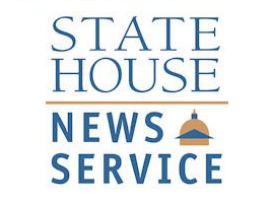Report: Mass. Health Care Costs Rose 4.3 Percent in 2019

DATE: March 25, 2021
Hospitals Helped Drive Spending Total to $64.1 Billion
.....Spending on health care in Massachusetts hit $64.1 billion in 2019, a 4.3 percent increase that exceeded a state cost-control target and was driven by growth related to hospital outpatient care, according to a new state report.
The Center for Health Information and Analysis report tracked a second consecutive year of above-benchmark health care spending growth, after a 3.6 percent rise in 2018. The 2019 spending level breaks down to $9,294 per capita.
CHIA officials presented their findings Thursday to members of the Health Policy Commission and the Legislature's Health Care Financing Committee.
The commission, which like CHIA was created under a 2012 law aimed at reining in rising health costs, is tasked with setting an annual benchmark against which cost growth is measured.
Under state law, next year's target will be set at 3.1 percent, though HPC can opt to raise it as high as 3.6 percent. Thursday's hearing was part of the benchmark-setting process, and the next step is an April 14 vote.
The annual exercise comes this year in the 13th month of a pandemic that has upended the normal patterns of health care and its delivery while creating new layers of financial stress for family budgets, employers, and hospital systems, among many others.
"We are at a critical point. Especially after the last year when many of our residents struggled to keep their jobs and put food on the table, the increase in health care costs could not come at a more difficult time," said Sen. Cindy Friedman, an Arlington Democrat who co-chairs the Health Care Financing Committee with Rep. John Lawn.
Health Policy Commission Chair Stuart Altman said CHIA's report "shows that health care spending accelerated in the years prior to the COVID-19 pandemic." He said that "concerning trend" and signs of price growth in late 2020 threaten "to erode the gains we have made and further challenge the families and employers who already struggle to afford the high cost of health care in Massachusetts."
CHIA's report said gross prescription drug spending totaled $10.7 billion in 2019, up 7.2 percent from the previous year. When taking rebates for prescription drugs into account, pharmacy spending grew 3 percent from 2018, to $8.3 billion.
"After accounting for pharmacy rebates, pharmacy spending fell behind the other major service categories in year-over-year growth, resulting in hospital outpatient being the largest driver of expense growth," the report said.
While the report said gross prescription drug spending "accounted for the greatest share of the growth" in total health care expenditures, industry groups pointed to the spending levels net of rebates.
The Pharmaceutical Research and Manufacturers of America said the 3 percent net growth makes pharmacy "the only major spending category" to land below the 2019 cost growth benchmark, and Massachusetts Biotechnology Council Executive Vice President Zach Stanley said the report "refutes the growing calls for government to regulate drug prices."
Massachusetts Association of Health Plans President and CEO Lora Pellegrini said the report "demonstrates that more work needs to be done to slow the growth of health care spending in the Commonwealth," pointing to rising prices charged for hospital and physician services and for prescription drugs.
2019 marked the first time in several years, according to the report, that hospital outpatient spending was the largest component of total commercial insurance expenditures. Hospital outpatient services were the biggest driver of the commercial spending increase in 2019, the report said.
Massachusetts Health and Hospital Association President Steve Walsh said in a statement that the state's hospitals "remain focused on navigating the tremendous financial challenges that have emerged in the time since the data in this report was collected."
"It is difficult to place any measure on all our providers have accomplished over this past year, other than to say that their actions have been heroic and historic," he said. "Despite suffering billions of dollars in losses, they have managed to keep their doors open and remain accessible to patients in every community across [the] commonwealth. We look forward to working with CHIA and other state partners as we emerge from this crisis and assess the deep losses it has imposed on our healthcare organizations."
According to the HPC, annual spending growth in Massachusetts has averaged 3.59 percent between 2012 and 2019, and an average Massachusetts family and their employers paid $2,242 per month for health care in 2020, including out-of-pocket spending on copayments, deductibles, premiums and other health care services.
Alex Sheff of the Health Care for All asked the HPC not to increase the benchmark from its 3.1 percent level next year, saying that a hike "would come at a cost to individuals and families who simply cannot afford it."
"The weight of the pandemic cannot be placed on the shoulders of consumers," he said.
Lawrence General Hospital President and CEO Deb Wilson asked that the commission take health equity into account when setting the target.
She said her hospital serves a city with the highest concentration of people of color of any Massachusetts community, and that one in four Lawrence residents contracted COVID-19. Lawrence General has high proportions of MassHealth patients, and is paid 74 percent of its costs for those patients, Wilson said, asking the HPC to allow for growth in reimbursement.
"While we understand the importance of a cost growth benchmark, there is no sustainable plan forward for us without a higher growth rate than the cost growth benchmark you are going to set today," she said.
